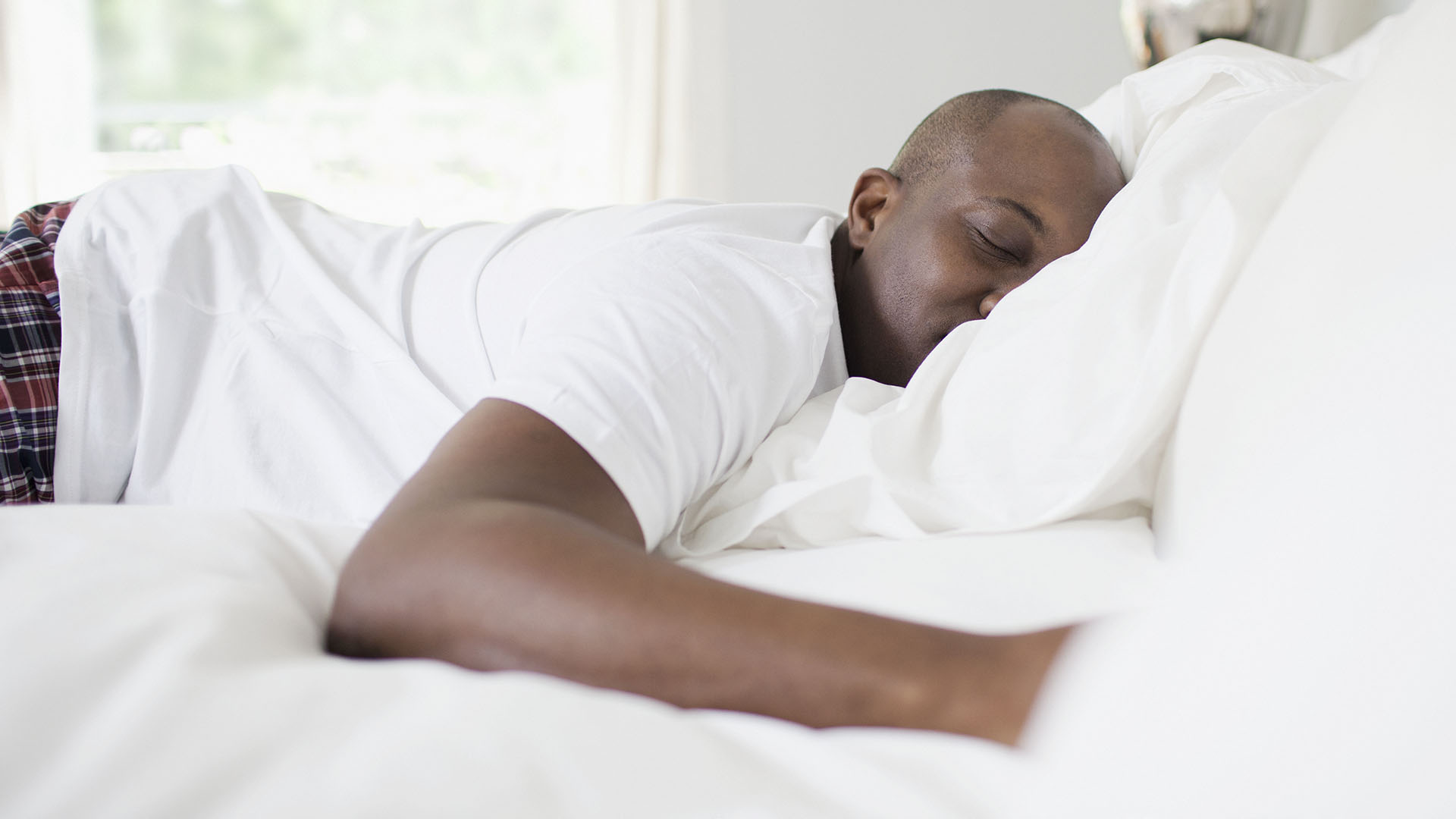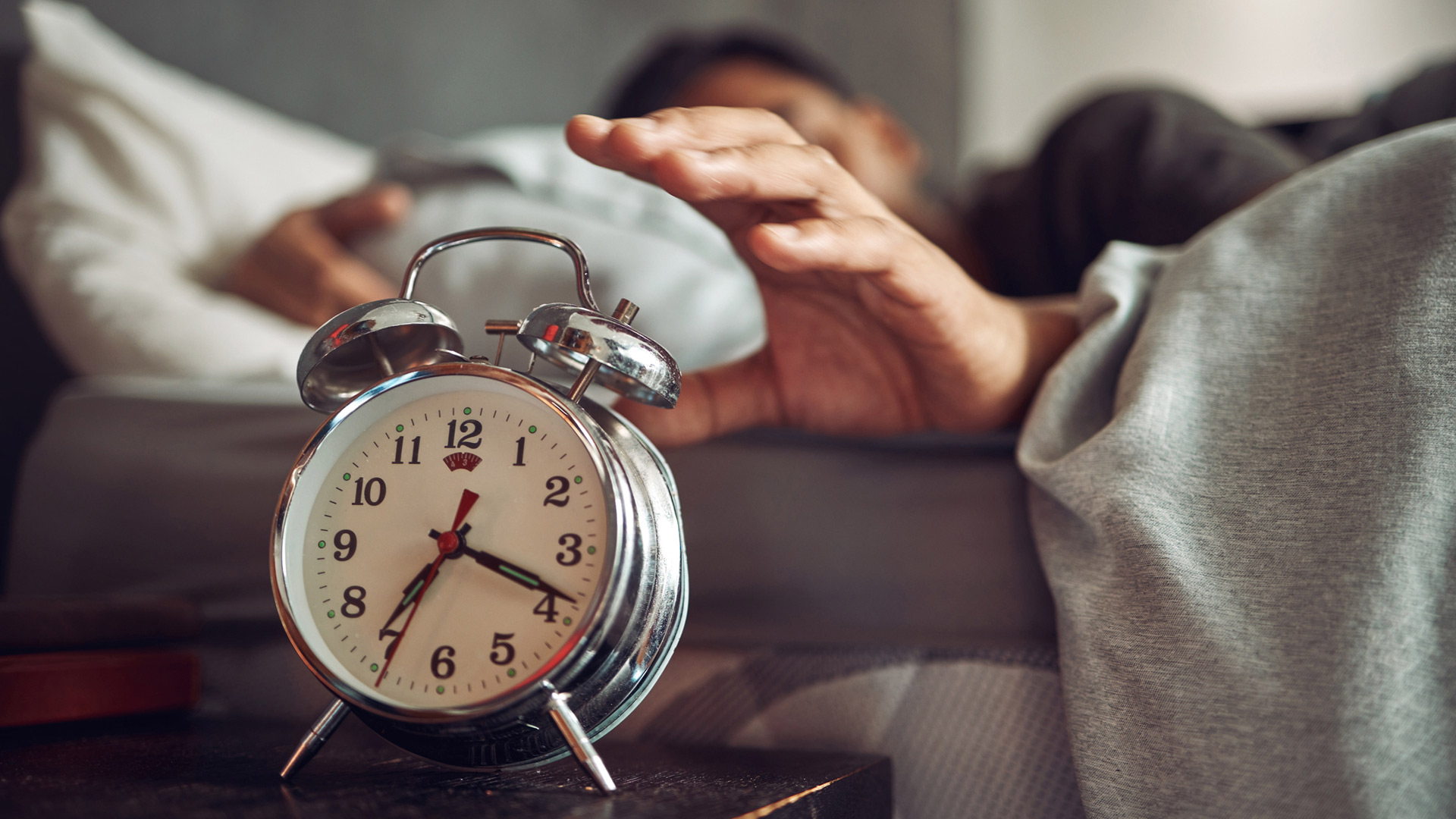Is lying down after eating bad? We take a look at the science
A quick lie down can completely disrupt your digestion

You’ve come home late, scoffed down a big meal, and now it’s pretty much time for you to curl up and go to sleep. But while lying down might seem like a good idea at first, it isn't long before an aching feeling in your stomach makes you think this perhaps wasn't the best plan. But why is lying down after eating bad?
When you lie down after eating, you disturb your digestive system, putting it at an angle that works against gravity. This causes the contents of your stomach to reflux, moving back up and into the esophagus and resulting in an aching, burning sensation in your chest.
Even the best mattress can't help soothe indigestion – but it might help you fall asleep when your food has finally gone down – which is why we recommend waiting three hours before eating before going to bed. Read on to discover more about why lying down after eating is bad (it's an important part of the 10-3-2-1-0 sleep method), and what you can do to avoid reflux.
What happens if I lie down after eating?
The digestive system works best when you're in an upright position, as it's being assisted by gravity. Lying down after eating can disrupt the smooth running of this natural process, potentially causing food to head backwards from the stomach and into the esophagus. This is known as reflux, and it can lead to painful heartburn.
When things work properly, food travels down the esophagus, into the stomach, and through to the small intestine (and onwards). When you're sitting up, gravity can aid this process, so everything moves efficiently.

But when you lie down, the body has to work against gravity. Instead of moving forwards to the small intestine, the contents of your stomach can go backwards, towards the throat. And as your food has already made it to the opening of the stomach before the reflux, it might take some stomach acid with it.
This reverse-course can lead to uncomfortable, even painful symptoms of acid reflux such as heartburn and GERD. When this happens in bed, you might find this prevents you from sleeping, or wakes you up after you've drifted off.
But that doesn't mean the bed is the problem: lying down anywhere after eating can cause indigestion. Following dinner with a horizontal movie marathon on the sofa is just as disruptive for your digestive system as heading to bed.
How long should I wait to lie down after eating?
It's recommended that you wait three hours after eating before lying down. This gives your food a chance to pass easily through the digestive system, so you're less likely to experience indigestion or stomach pains resulting rom reflux.
Research has indicated that this wait time is particularly important for those suffering from GERD (gastro-esophageal reflux disease). However, we can all benefit from making an early dinner part of our bedtime routine.

There’s also evidence to suggest that your circadian rhythms allow for more effective digestion if you eat earlier in the day, during the active phase. As our circadian rhythms also dictate when we feel sleepy and when we feel awake, it's worth keeping it all in line.
Get daily insight, inspiration and deals in your inbox
Sign up for breaking news, reviews, opinion, top tech deals, and more.
What happens if I sleep right after eating?
Going to bed straight after eating can prevent your body from digesting food properly, as the digestive system is working against gravity. This can result in heartburn and GERD. It’s also likely to lead to disrupted sleep, and regularly eating late has also been linked to weight gain.
Heartburn and GERD
Acid reflux describes when your stomach contents refluxes, heading back along the digestive system and into the esophagus. For many people, this acid reflux presents as heartburn, which is a relatively mild aching sensation in the chest.
However, when acid reflux happens regularly, it can become GERD (Gastro-Esophageal Reflux Disease). This is when repeated reflux has begun to irritate the throat. Like heartburn, GERD can cause a burning feeling in the chest, but it can also lead to trouble swallowing, a persistent cough, and even asthma.

Studies have shown that people with GERD who eat late at night are more likely to experience reflux than those who eat earlier in the evening. In addition, some studies have found that eating time can be one of the main causes for patients with GERD to suffer reflux.
Disrupted sleep
Unrelated to the digestive issues, eating before bed might be keeping you awake (although, digestive issues can have the same effect). When we’re eating, our body gets to work transforming that food into energy. Eating before bed can make you feel more awake, disrupting your circadian rhythm and making it harder to sleep. With the 10-3-2-1-0 sleep method, you stop eating three hours before bed, to prepare yourself for winding down.
Weight gain
Eating before bed has also been linked to weight gain, although further research is needed to establish exactly why this might be true. While it might be linked to our slowed down digestive process, it might also be that when we're tired, we're less likely to make healthy eating choices.
What if I HAVE to eat in the evening?
It might be best to eat three hours before bed, but this isn't always a feasible option. Busy schedules mean many of us have to fit in food when we can, which can lead to meal times getting pushed back. But there are some things you can do about it:
1. Eat as early as possible
If you can’t manage a meal a full three hours before you sleep, aim to eat as early in the evening as possible. This way, your food will still have had time to digest before you lie down. And consider what you eat – try switching a heavy evening meal for something lighter, and eat more at lunchtime instead.

2. Get active
Once you've eaten your evening meal, don't head straight to the sofa, but go for a walk. Research has shown that walking can improve digestion time, which is good news if you don't have long before bed. And as exercise can improve your sleep, it’s a win on both counts.
3. Sleep on your left side
When you're in bed, think about your sleeping position. Side sleeping is good for your spine and posture, but studies show lying on your right side can increase the risk of experiencing reflux, due to the position of your stomach. Try switching to the left side, and tuck a pillow between your knees to keep you in place.
4. Don't go hungry
It is important to note that while eating late might not be ideal, going to bed hungry isn’t the solution. An empty stomach can both keep you awake and wake you up once you’ve finally drifted off. Choose a light, healthy snack consisting of foods that can help you sleep, like a handful of cashew nuts. And avoid foods that can keep you awake, such as sugary foods, spicy foods, and foods with caffeine (no late night chilli chocolate, then).

Ruth is TechRadar’s Sleep Writer. She’s here to help you find the perfect sleep setup for your budget and personal preferences. As well as keeping a keen eye on everything that’s going on in the world of mattresses, she regularly speaks to experts to help you learn how to improve your sleep habits, whether that’s by debunking sleep myths or explaining the science behind it all. Prior to joining the TechRadar team, she wrote features and product guides for new parents hoping to get a decent night's sleep, as well as writing for a variety of online spaces.